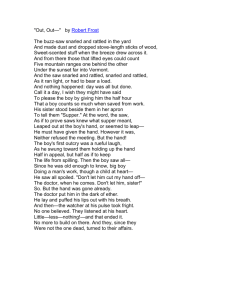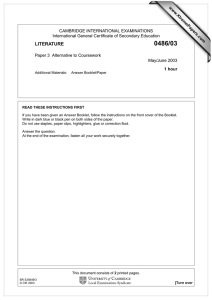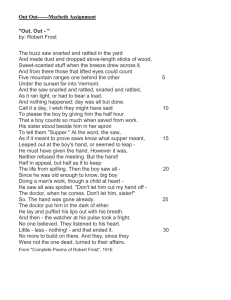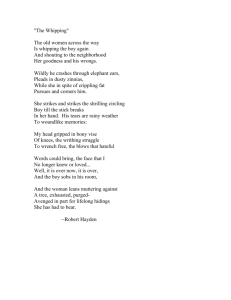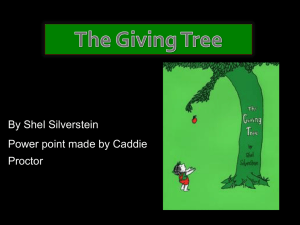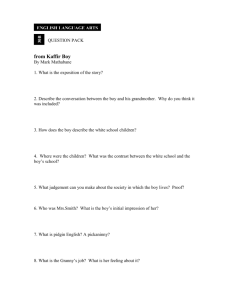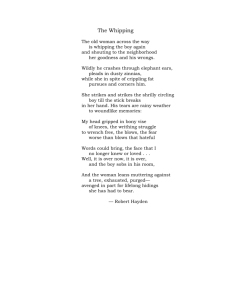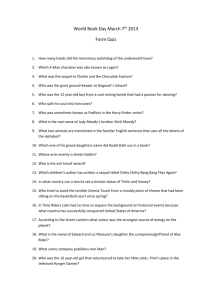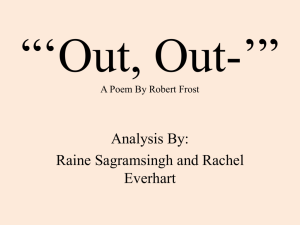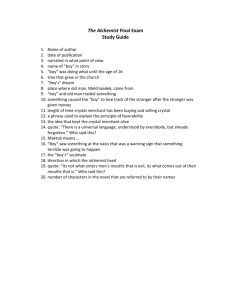Robert Frost's "Out, Out -" Literary Analysis
advertisement
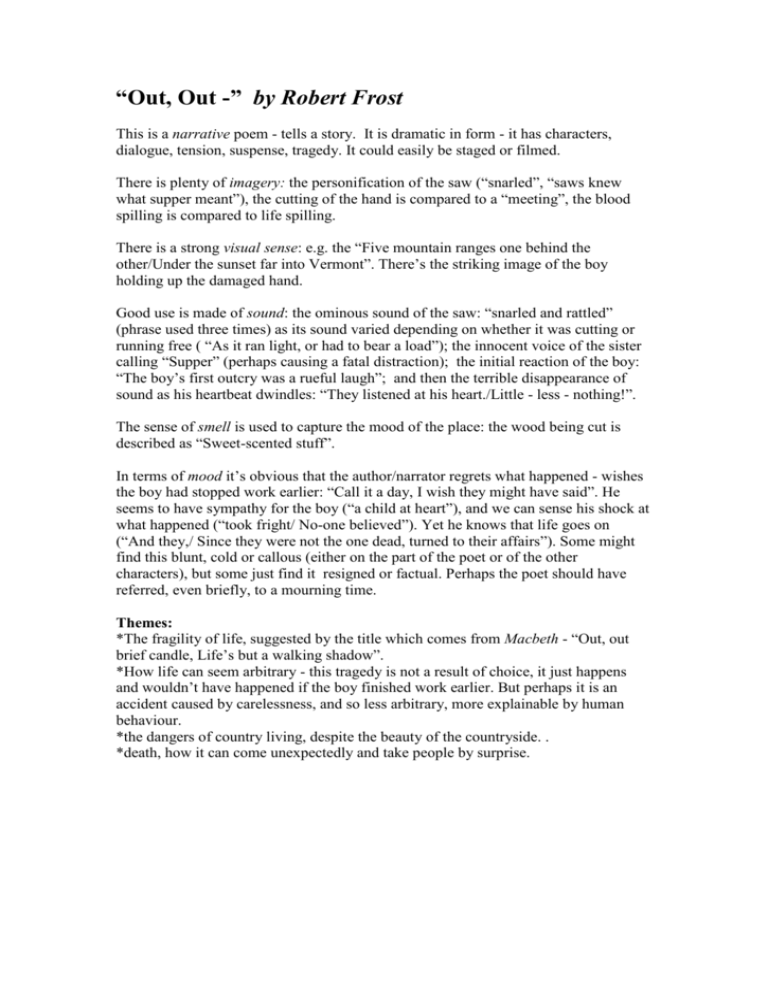
“Out, Out -” by Robert Frost This is a narrative poem - tells a story. It is dramatic in form - it has characters, dialogue, tension, suspense, tragedy. It could easily be staged or filmed. There is plenty of imagery: the personification of the saw (“snarled”, “saws knew what supper meant”), the cutting of the hand is compared to a “meeting”, the blood spilling is compared to life spilling. There is a strong visual sense: e.g. the “Five mountain ranges one behind the other/Under the sunset far into Vermont”. There’s the striking image of the boy holding up the damaged hand. Good use is made of sound: the ominous sound of the saw: “snarled and rattled” (phrase used three times) as its sound varied depending on whether it was cutting or running free ( “As it ran light, or had to bear a load”); the innocent voice of the sister calling “Supper” (perhaps causing a fatal distraction); the initial reaction of the boy: “The boy’s first outcry was a rueful laugh”; and then the terrible disappearance of sound as his heartbeat dwindles: “They listened at his heart./Little - less - nothing!”. The sense of smell is used to capture the mood of the place: the wood being cut is described as “Sweet-scented stuff”. In terms of mood it’s obvious that the author/narrator regrets what happened - wishes the boy had stopped work earlier: “Call it a day, I wish they might have said”. He seems to have sympathy for the boy (“a child at heart”), and we can sense his shock at what happened (“took fright/ No-one believed”). Yet he knows that life goes on (“And they,/ Since they were not the one dead, turned to their affairs”). Some might find this blunt, cold or callous (either on the part of the poet or of the other characters), but some just find it resigned or factual. Perhaps the poet should have referred, even briefly, to a mourning time. Themes: *The fragility of life, suggested by the title which comes from Macbeth - “Out, out brief candle, Life’s but a walking shadow”. *How life can seem arbitrary - this tragedy is not a result of choice, it just happens and wouldn’t have happened if the boy finished work earlier. But perhaps it is an accident caused by carelessness, and so less arbitrary, more explainable by human behaviour. *the dangers of country living, despite the beauty of the countryside. . *death, how it can come unexpectedly and take people by surprise.
